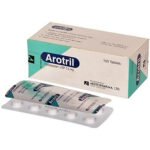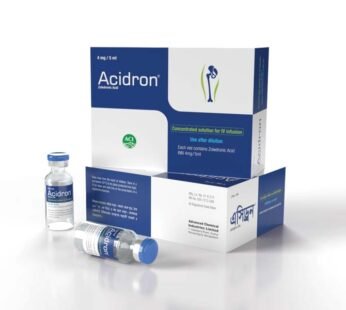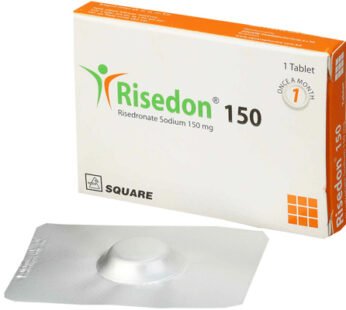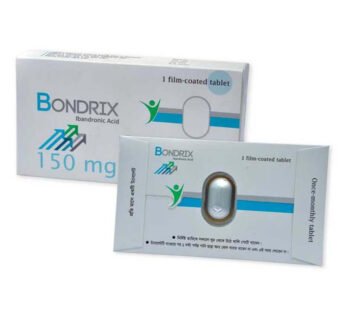Arth-A 250 mg+200 mg
Description
Indications
Arth-A is recommended as a dietary supplement for managing osteoarthritis in the knee, hip, spine, hands, and other joints. It also provides benefits in conditions such as rheumatoid arthritis, sports injuries, migraines, and various skin disorders like psoriasis. Additionally, it may aid in vascular complications such as atherosclerosis, kidney stone prevention, and inflammatory bowel diseases, including ulcerative colitis and leaky gut syndrome.
Use this medication only as prescribed by a registered physician.
Pharmacology
Glucosamine is a naturally occurring amino sugar that the body synthesizes and is also present in some foods. It plays a crucial role in the formation of glycosaminoglycans (GAGs), such as hyaluronic acid, keratan sulfate, and chondroitin sulfate. These GAGs bind with proteins to form proteoglycans, which are essential components of cartilage. Osteoarthritis occurs when cartilage deteriorates, and glucosamine supplementation supports cartilage repair and maintenance. It is also involved in forming ligaments, tendons, nails, and other connective tissues.
Supplementing with synthetic glucosamine sulfate enhances the body’s glucosamine levels, promoting cartilage production and repair. It also activates chondrocytes in cartilage, stimulating the production of GAGs and proteoglycans, essential for joint health.
Chondroitin sulfate, a glycosaminoglycan found in connective tissues, particularly in articular cartilage, works in a similar manner to glucosamine sulfate by serving as a substrate for proteoglycan synthesis. Additionally, it helps protect cartilage from degeneration by inhibiting matrix metalloproteinase (MMP) enzymes that degrade proteoglycans.
When combined, glucosamine and chondroitin sulfate exhibit a synergistic effect, proving highly effective in treating osteoarthritis. Studies suggest that this combination not only alleviates osteoarthritis symptoms but also slows disease progression. It may prevent osteoarthritis in healthy individuals and is considered as effective as nonsteroidal anti-inflammatory drugs (NSAIDs) in managing osteoarthritic pain, with improved tolerability and compliance. Moreover, it aids in the recovery of musculoskeletal soft tissue injuries, including tendon and ligament strains.
Dosage & Administration
- 250/200 mg tablet: Take 1 to 2 tablets three times daily. The dosage may be adjusted based on response and body weight. After 60 days, the dose can be reduced as needed for individual requirements and cost-effectiveness.
- Recommended daily dosage based on body weight:
- Below 54 kg: 1000 mg glucosamine sulfate & 800 mg chondroitin sulfate
- 54 kg to 91 kg: 1500 mg glucosamine sulfate & 1200 mg chondroitin sulfate
- Above 91 kg: 2000 mg glucosamine sulfate & 1600 mg chondroitin sulfate
- 750/600 mg tablet: Take 1 tablet twice daily or as directed by a physician.
Use this medication only as prescribed by a registered physician.
Drug Interactions
There are no significant reported interactions between glucosamine, chondroitin, and commonly used medications such as antibiotics, antidepressants, antihypertensives, nitrates, antiarrhythmics, anxiolytics, hypoglycemic agents, antisecretory drugs, or antiasthmatics. However, chondroitin may enhance the anticoagulant effects of blood-thinning medications like warfarin and heparin.
Contraindications
While no absolute contraindications have been identified for glucosamine and chondroitin, individuals with known hypersensitivity, such as allergies to shellfish or sulfur-containing compounds, should avoid these supplements.
Side Effects
Clinical studies indicate that glucosamine sulfate and chondroitin sulfate have a favorable safety profile, with no significant side effects. In rare cases, mild and reversible gastrointestinal discomfort, such as flatulence, has been reported, with incidence similar to placebo.
Pregnancy & Lactation
The effects of glucosamine sulfate and chondroitin sulfate on pregnancy and fetal development have not been extensively studied. Therefore, pregnant women or those planning to conceive should avoid supplementation unless advised by a healthcare professional. Similarly, there is insufficient data on their safety during lactation, and caution is recommended.
Precautions & Warnings
Patients with diabetes should monitor blood glucose levels regularly while using glucosamine. Although no specific studies have been conducted in individuals with renal or hepatic impairment, the pharmacokinetic and toxicological data do not indicate any particular concerns. However, patients with severe liver or kidney dysfunction should use these supplements under medical supervision. Glucosamine and chondroitin are not recommended for children.
Therapeutic Class
Cartilage Formation Stimulant
Storage Conditions
Store in a cool, dry place, away from direct light, to maintain product integrity.
Additional information
| Weight | 0.15 g |
|---|








Reviews
There are no reviews yet.